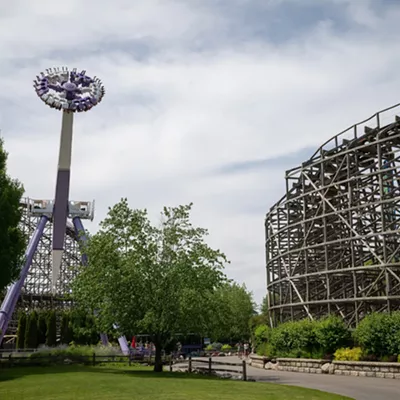It's natural to be skeptical when a television show returns after a long hiatus. Will there be continuity in the writing and cinematic style? Or will it be so warped that fans find it unrecognizable?
So when the fourth and final season of Mr. Robot — creator Sam Esmail's edgy thriller about a young, mentally unstable vigilante hacker who takes on a corrupt corporation by trying to erase all debt — aired last fall after a two-year hiatus, I was apprehensive.
The previous three seasons were a big draw. There was the phenomenal acting of Rami Malek, who plays the hacker Elliot; the bold and creative cinematography and music; and the show's nuanced treatment of mental illness, trauma and drug use. It didn't shy away from criticisms of corporate power, greed and its corrupting influence on democracy and society in general. The show doesn't ever invoke Karl Marx, it still channels a leftist-anarchist critique of contemporary capitalism. It's a bleak and fascinating ride that feels current.
Fast forward to season four, now streaming on Amazon Prime: Elliot's past attempts to bring down the world's most powerful corporation — which he calls "Evil Corp" — have largely failed. A Chinese government minister who leads a double life as White Rose, the trans leader of a shadowy hacker-terrorist group, is actually pulling the strings at Evil Corp and Elliot is on the warpath to take them down. At first, the season doesn't seem to take great effort to either explore Elliot's complex mental state or any substantive political ideas. But, thankfully, I was mistaken.
The latest season skillfully uses superbly acted one-on-one dialogue scenes with intense and varied emotional range as a way to discuss the vital role that social connection and community play in enriching the human experience. A climactic scene between Elliot and White Rose spells out how the absence of human connection and acceptance has, at least partially, motivated White Rose's psychotic and violent tendencies. Elliot, meanwhile, who has projected an antisocial and nihilistic personality throughout the show, articulates how his personal relationships, however flawed, are what keep him going. It's a heartwarming moment and out of character for the show, but it works.
There was no high-minded screed on class consciousness and the ills of private property at the end of the series, as I'm sure some lefty viewers hoped for. As it turns out, many of the characters' most important struggles were figuring out how to connect with other people. ♦



















